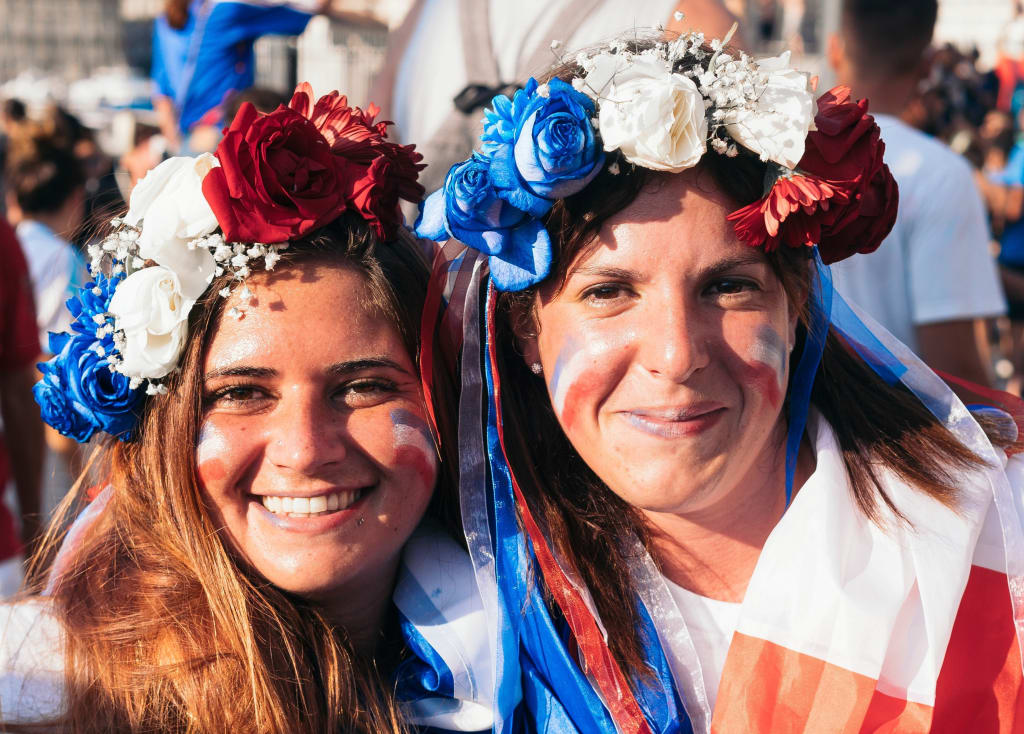
The French got up early the day they handed out national stereotypes. While the Brits were sleeping in, they pinched a flair for gastronomy, romance and fashion, leaving les Anglo-Saxons to take home bad teeth, inferior lovemaking and good queuing.
To attempt to get beyond the Gallic clichés, you need an excellent raison d’être—in my case, it was following a partner to her homeland in 2016—but also plenty of patience, a little luck, optimism and a thick skin will come in handy too.
Most importantly, you will need the language. For all its Byzantine complexity, it will be worth the effort; being in France without it, is like watching a movie with the volume down—it will look beautiful, but you’re missing most of what’s going on.
Don’t be put off by setbacks, trust me, I know them all; to say I picked up French quickly, is to say the leaning tower of Pisa has been quick to topple! Persevere, and you will gain a life long pass into one of the most appealing cultures on the planet.
Here are my ten favorite linguistic bonbons, learned on the long road of cross-channel communication.
1. Bon Courage
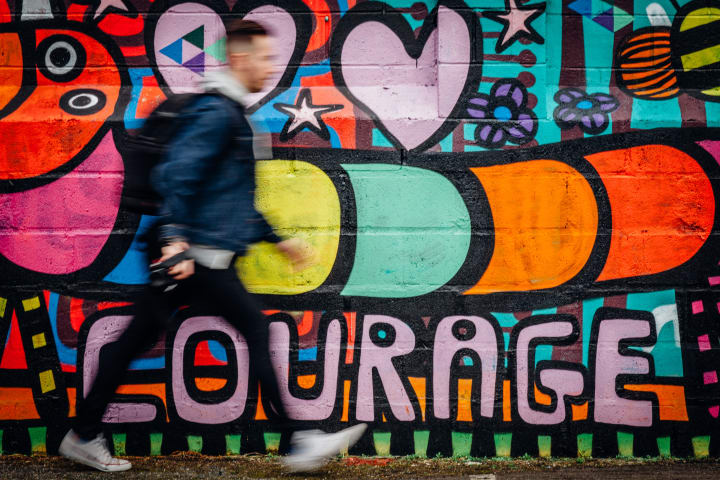
Bon courage comes in as my favorite French term. The first occasion I heard it was during my time at a Provincial language school in La Seyne sur Mer. The owner – a woman, called Laetitia – saw the my apprehension on the first day of shadowing school lessons.
She smiled and said something sweet as I was about to enter the schoolroom, ‘Bon courage.’ I asked her for its meaning– ‘Have courage or good courage,’ was the reply from her assistant who better spoke English. Since then it has become a firm favorite, and I’d like to campaign for it's adoption into everyday English vernacular if I could.
Our nearest equivalent is good luck, though good courage, is so more useful for daily life. Good luck suggests that you’re in the hands of fate, bon courage suggests you can summon the strength within to overcome adversity.
Be it a long day at work, stressful appointment or conversation that leaves you a little anxious, bon courage is the perfect send-off. I use it to conclude messages all the time, even to people who can’t speak French.
2. Mon cœur

Mon cœur (pronounced Mon Kurr) meaning my heart, comes in a close second in the top ten. Again, unknown as a term of endearment north of the channel (sweetheart being close but not quite the same).
I got used to hearing it when my then mother-in-law to be, would take the family dogs out behind the house to exercise. She'd use it quite often, especially as she threw around the wind-felled pine cones to exercise Roni and Taylor—the two Beauceron guard dogs (Beauceron being a beautiful French breed initially reared to keep medieval wolves at bay).
When Roni (the younger of the two) chased after the projectiles and the provincial red dust rose under his charge , ‘aller mon cœur,’ (come my heart) tended to be a familiar chant following him, echoing across the small valley side. Mon cœur was to be the first phrase I picked up, and before long, I used it when calling the dogs in as if by second nature.
Should mon cœur only be used for romantic of occasions, it would lose its charm. It’s due to its common usage that (from my perspective) I find it so enchanting. There is a completeness to the expression, and when someone calls you their heart, it seems particularly French (The English rarely mentioning it to anyone but their cardiologist).
3. Ma puce
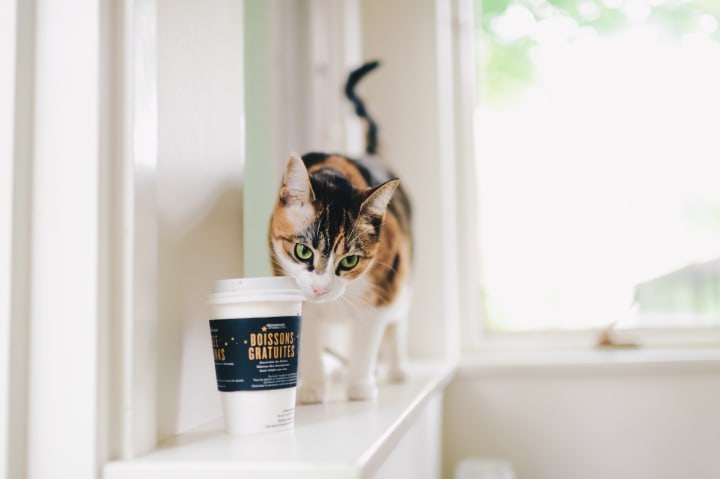
Translates to – ‘my flea.’ Now calling someone a flea might seem unpleasant, but it is the French way of seeing the charm in the insignificant. To an English ear, it sounds like ‘Ma Puss,’ - in the informal reference to a cat - which I think adds to its cuteness.
I used to hear this as my former mother-in-law would call in le petite chat Mimi, a little black cat, formally wild but who’d adopted the family to become captain of the two forty pound Beauceron. A bright and affectionate creature, she protected the house better than any of its other two or four legged inhabitants.
Aller ma puce when pronounced by a native French speaker sounds very charming. However, this is a phrase I feel wouldn’t translate to Blighty, come on my flea echoing over the back gardens of Basildon, doesn’t have quite the same ring.
4. Mon amour
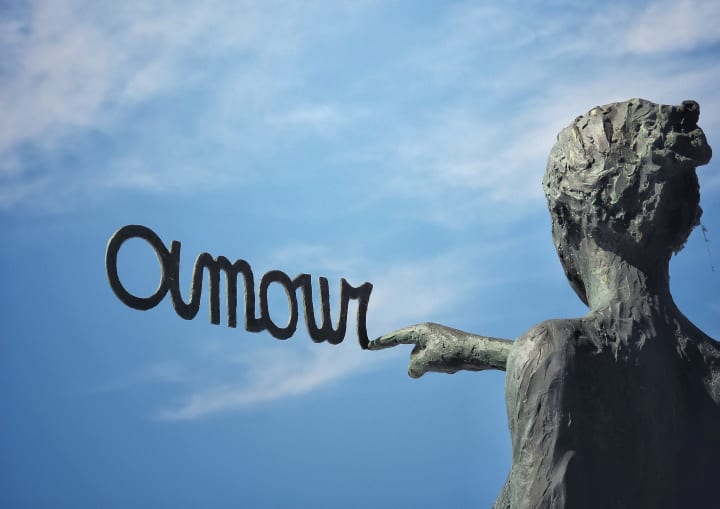
Probably somewhat familiar the world over, needing little translation. Mon amour or My love is a term used in the English speaking world too, though differently to common French usage, it's said on the continent with greater regularity and sincerity.
In England, a market stall trader may hand over a half a pound of oranges innocently saying – ‘there you go my love,' just before he gets called out for being misogynistic on twitter . So it's fare to say it’s a little old fashioned and less likely to be heard.
The French still use it frequently, spoken to all they care about and in the most sincere sense. When the french add mon amour to the greeting or farewell, it comes from the heart.
5. Ma bichette

This literally translates as my Doe (female Deer) not to be confused with the English ‘ my dear,’ which though having similar roots, is used differently. Ma bichette is reserved for a younger woman, even a girl, and it rolls off the tongue with a sigh when spoken.
I first heard it when my partner’s sister-in-law returned from a long day at work. She’d leave at five or so in the morning and get back mid-evening, day after day. My partner’s mother often used this greeting when welcoming her home. Seeing her arrive tired and always busy, it was a way of offering a little warmth, solace and affection to her fatigue.
6. Rostbifs (Roast beefs)
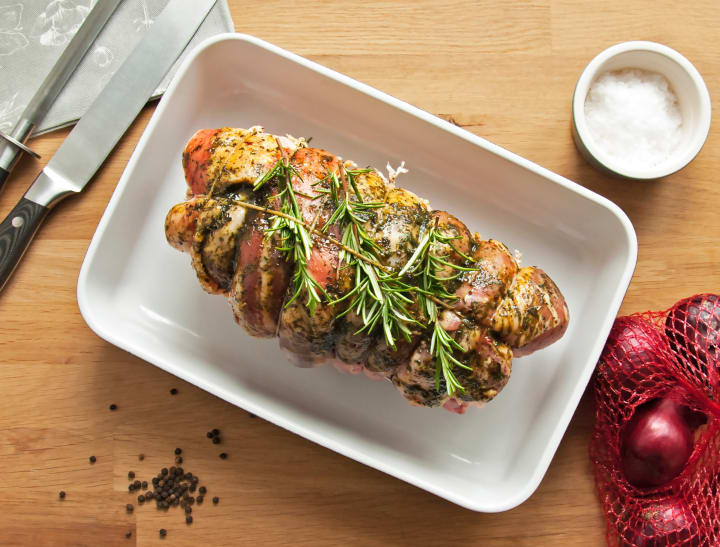
Roast beef certainly isn’t a term of endearment, and in fact it’s the word used by the French to describe the English in a negative context, the only problem is that I quite like it. Roast beef (even as a vegetarian) is a fine English meal, it’s like calling the French Les Sanglier (wild boars), it’s not that offensive and as such it's a backhanded compliment.
I never knew that anyone called the Brits rostbifs, and when I found out I smiled, as far as I know, no one ever called me it (not to my face anyway), but friends said it is commonly used.
Perhaps it's just me, yet as a sleight, it feels comically ineffective (and maybe that's the point). I'm reminded more of lines from Monty Python and the Holy Grail, when the "outrageous" French soldier is taunting King Arthur from the battlements (extract below).
“ARTHUR: If you will not show us the Grail, we shall take your castle by force!
GUARD: You don’t frighten us, English pig-dogs! —Go and boil your bottoms, sons of a silly person. I blow my nose at you, so-called Arthur-king, you and all your silly English kniggits. Thpppt!
GALAHAD: What a strange person.
ARTHUR: Now look here, my good man!
GUARD: I don’t want to talk to you no-more, you empty headed animal food trough wiper!…… I fart in your general direction! . Your mother was a hamster and your father smelt of elderberries!
GALAHAD: Is there someone else up there we could talk to?
GUARD: No, now go away or I shall taunt you a second time-a!”
So even though I know the French have more utilitarian insults (just like the Brits) the one they have reserved for their northern neighbors is actually endearingly very French.
7. Bonne journée

Bonne journée translates as Have a good day – You remember those old films or adaptations of Victorian England when people walked around in top hats saying ‘good day sir!’ A quaint world of good manners, well here’s the surprising news, it still exists in France, Bonne journée is in everyday use.
You should not interact with someone in a shop without making it your departing farewell, be it stranger or friend, wish them a Bonne journée, it’s essential and just good manners.
I sometimes think the confusion between the English and the French comes from their different ways of interacting in Public. The English are taught to be reserved in a shop, a subtle hello and goodbye or even when you enter or leave 'cheers' is enough or perhaps a mere polite nod of the head.
It is the exact opposite in France, you’re expected to say aloud and melodic Bonjour to the shopkeeper as you enter — and here’s the trip-wire making Brits seem so rude — you’re also meant to say hello to the other shoppers, especially if it’s a small place like a tobacconist.
Bonne journée comes within that bundle of old fashioned and prompt politeness I’ve learned the French expect. It merely comes across rude not at least to learn those one or two basic rules of engagement. Never mind that wishing someone a good day seems Dickensian to English ears, it is a civilized way to interact in the twenty-first century.
8. Les Anglo-Saxons
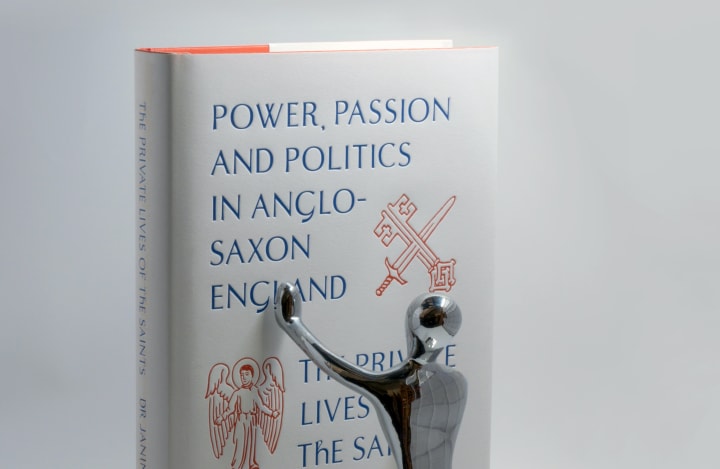
Les Anglo Saxons will be another one you probably won’t find on any other lists of endearing French terms. As a history buff I find the way the French commonly refer to the English speaking world as les Anglo-Saxons fascinating.
Of course it doesn’t fit in with the realities of a modern world where speaking English has little to do with the shield-walls of King Alfred the Great, but that doesn't stop the French from saying it.
Grouping Australians, Americans, Brits, English speaking Canadians and Kiwis under the term Anglo-Saxon happens all the time in: TV debates, politics and everyday conversation, whereas in the UK, the name is rarely referenced.
From the continent, similarities between those nations may seem more obvious (at least superficially), and indeed it’s true these days that you are as likely to be friends with someone on the other side of the Atlantic as the other side of the Channel.
There is an interesting footnote that the English speaking world refers to the French as Gallic, yet this is a title they themselves do not recognize, and I was surprised it’s imposed on the French by the English speakers.
In the same seam, it too refers back into history, farther though than Anglo-Saxon, to the tribes of Gaul, the fearsome foes of Caesar’s legions two thousand years ago.
Echoes of ancient worlds passing across the dinner table in casual conversation - be it Les Anglo-Saxons or Gallic - is in its way linguistically charming (though perhaps correctly culturally unfashionable).
9. Coucou and Mon coco
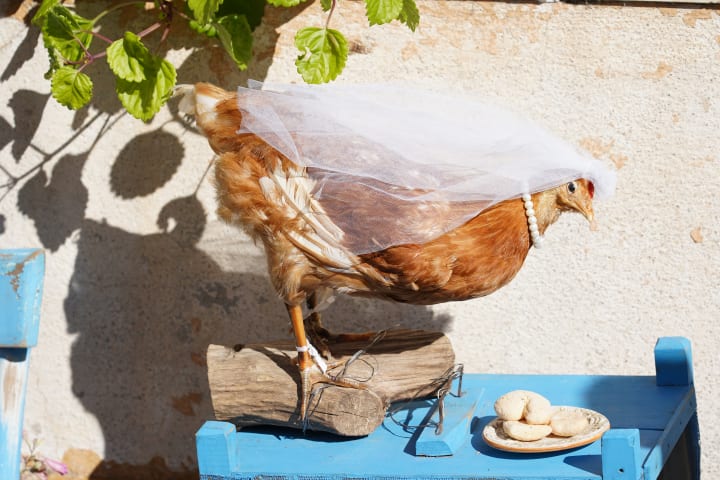
Coucou, is a greeting that I heard often. It’s an informal way of saying hi. It reminded me of how older generations in England used to say - couey, when knocking unannounced, on their neighbors’ back door, though almost unheard today.
Mon coco is similar sounding and very charming but means my hen. It's inclusion is not so much it being dear to my heart, I couldn’t resist adding it here as a cheeky reminder to how infuriating it is to learn French; mon is the masculine for my and coco means hen. So unless I'm missing something about the biology of French chickens, I have no idea why Coco comes in under the masculine column!
When learning French, it’s best to give up double guessing if a noun will turn out to be masculine or feminine. All you can be sure about is that the architects of French grammar raided the wine cellar the day they set the rules.
10. La Boulangerie
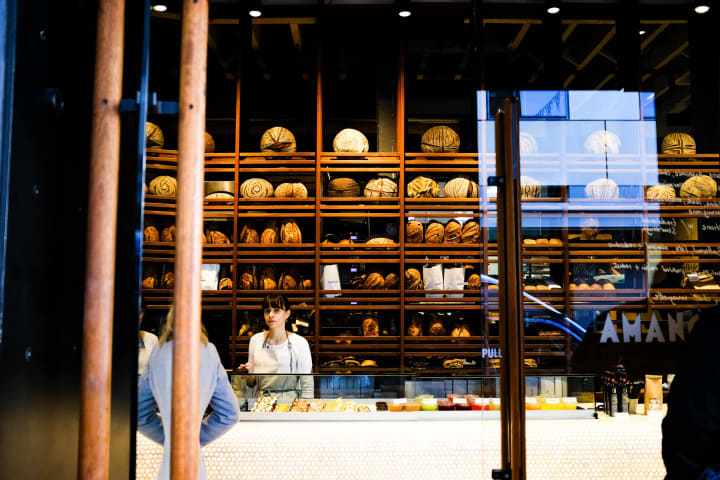
La Boulangerie isn’t a term of endearment, but the word itself represents all that is wonderful about France. Le boulanger - the baker (and yes the bakery is female but the baker is male 'la' and 'le.' I told you the rules of Grammar are strange) is at the center of French culture and has been for centuries. We don’t typically have La boulangerie across the channel, though I can’t understand why.
English bakeries offer five types of doughnuts and gingerbread men looking like they've been through a chemical spill. In contrast, the average French bakery has delights that Willy Wonka would be proud to produce from his chocolate factory.
Le boulanger works with a remarkable skill and dedication to their craft, myriad types of bread and countless beautiful desserts on display in every town and village, seven days a week. It’s something the French take for granted, however to the visitor, it's extraordinary what La Boulangerie produces.
If our American cousins can export McDonald’s across the world, I hope one day the French realize their boulangeries should be as common a sight on the British high-street as the fish’n’chips shop and the Chinese takeaway.
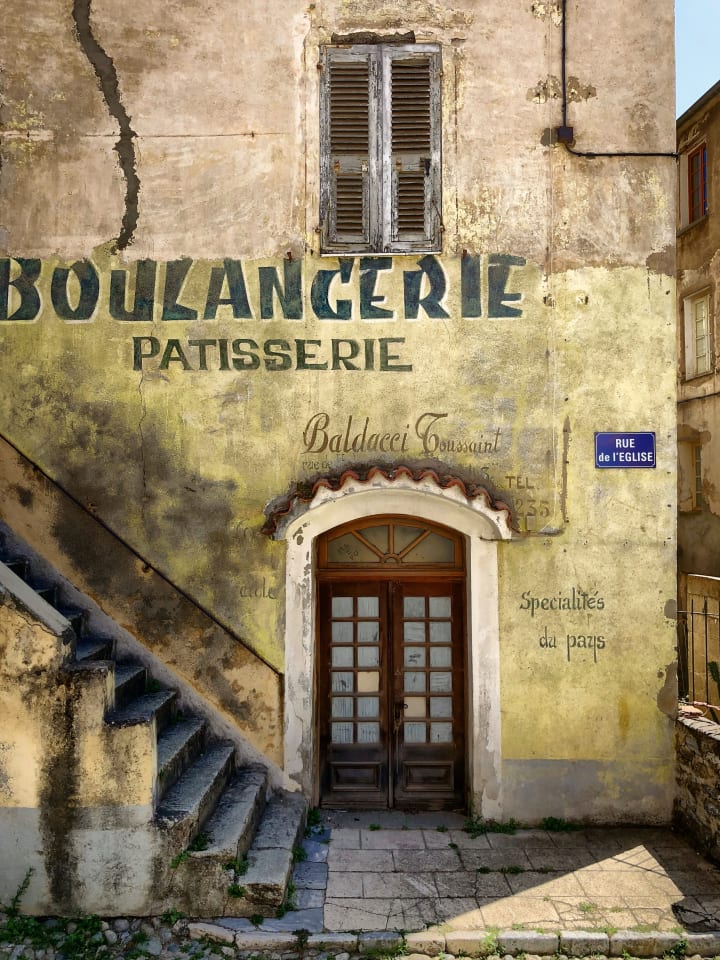
Getting to know France has taught me that some stereotypes are not invented in Hollywood, but in reality and in these uncertain times the oldest stereotype of all, that of a French man with a warm baguette under his arm, departing la Boulangerie with a Bonne journée, with his petit déjeuner, feels remarkably welcome and so reassuringly unchanging.
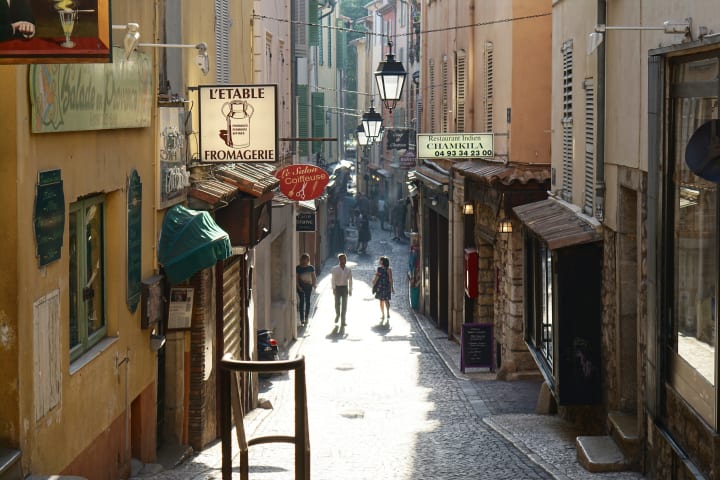
_____________________________________
If you enjoyed this article please show some love by sharing on social media to friends, or use the ‘leave a tip’ option available on this magazine platform. For further article inquires reach out at [email protected] or become a supporter at:
https://www.buymeacoffee.com/U8df74X
Below are my previous articles about lock-down in southern France on Vocal media.
https://vocal.media/wander/postcard-from-the-pandemic-2z2iw0a6w
https://vocal.media/longevity/come-what-may-is-a-second-wave-in-the-air-ua5k60ak6


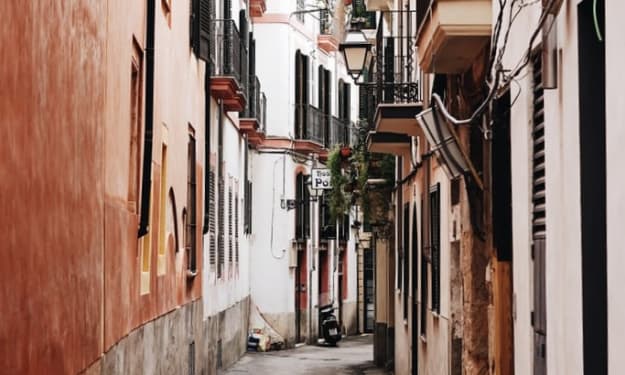



Comments
There are no comments for this story
Be the first to respond and start the conversation.